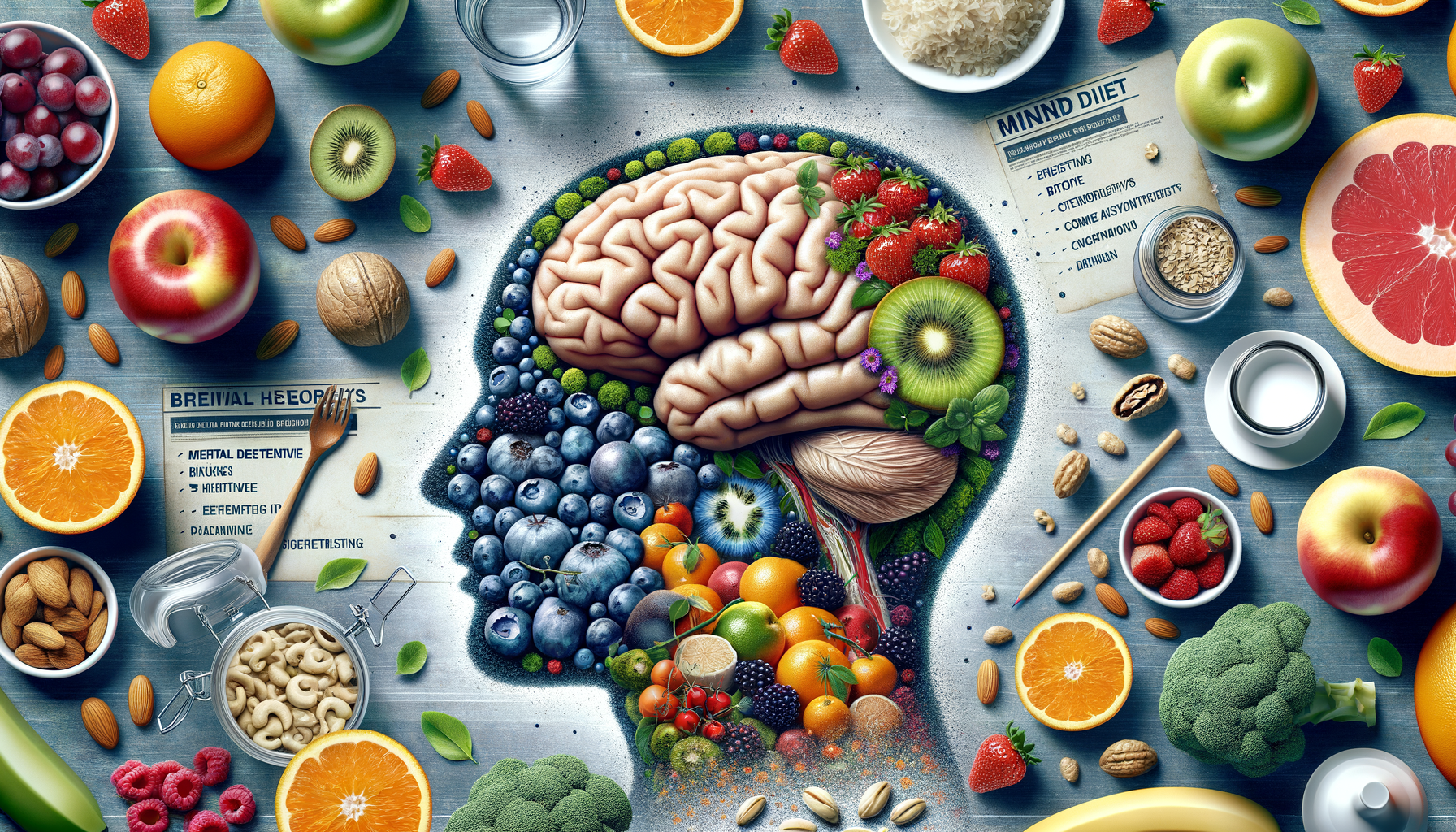What To Know About Foods That Help Prevent Alzheimer’s In Elderly
Worried about how diet can impact your loved one’s risk of Alzheimer’s? Understanding which foods support brain health is crucial for elderly care. Let’s explore the key nutrients and meals that may help protect against cognitive decline.

The Power of the MIND Diet: Foods to Embrace
The MIND diet, a hybrid of the Mediterranean and DASH diets, is gaining attention for its potential to reduce the risk of Alzheimer’s disease. This dietary approach emphasizes the consumption of specific foods known to enhance brain health. The acronym MIND stands for Mediterranean-DASH Intervention for Neurodegenerative Delay, and it focuses on ten food groups that are beneficial for the brain. These include leafy greens, other vegetables, nuts, berries, beans, whole grains, fish, poultry, olive oil, and wine.
Leafy greens, such as spinach and kale, are rich in nutrients like vitamin K, lutein, and beta carotene, which are known for their cognitive benefits. Berries, especially blueberries, are packed with antioxidants that combat oxidative stress, a key player in cognitive decline. The diet also encourages the consumption of nuts, which provide healthy fats and vitamin E, known for its neuroprotective properties.
One of the most compelling aspects of the MIND diet is its flexibility. Unlike more rigid diets, it allows for occasional indulgences, making it easier for people to adhere to in the long term. The emphasis is on incorporating more brain-healthy foods into your meals rather than strictly eliminating less healthy options. This approach not only supports cognitive health but also promotes overall well-being.
Brain-Boosting Antioxidants: Combating Oxidative Stress
Oxidative stress is a condition characterized by an imbalance between free radicals and antioxidants in the body. This imbalance can lead to cell damage and is a significant factor in the development of neurodegenerative diseases like Alzheimer’s. Antioxidants are crucial in neutralizing free radicals, and incorporating antioxidant-rich foods into your diet can help protect brain health.
Fruits and vegetables are excellent sources of antioxidants. Berries, such as strawberries and raspberries, are particularly beneficial due to their high levels of vitamin C and other antioxidant compounds. Dark chocolate, with its flavonoid content, is another tasty option that supports brain health. Additionally, green tea is renowned for its catechins, which have been shown to improve memory and cognition.
Incorporating these foods into your daily routine can be simple and enjoyable. Consider starting your day with a berry smoothie or enjoying a piece of dark chocolate as an afternoon treat. By making these small changes, you can help reduce oxidative stress and support your cognitive function.
Lifestyle Factors Complementing Diet for Alzheimer’s Prevention
While diet plays a crucial role in Alzheimer’s prevention, it is only one piece of the puzzle. Lifestyle factors such as physical activity, mental stimulation, and social engagement also significantly contribute to cognitive health. Regular exercise, for instance, increases blood flow to the brain and promotes the growth of new neurons, which can help maintain cognitive function.
Mental stimulation is equally important. Engaging in activities that challenge the brain, such as puzzles, reading, or learning a new skill, can help build cognitive reserve and delay the onset of Alzheimer’s symptoms. Social interaction is another key component. Maintaining strong social connections has been linked to a lower risk of cognitive decline, as it encourages mental engagement and emotional well-being.
Combining these lifestyle factors with a brain-healthy diet creates a comprehensive approach to Alzheimer’s prevention. By adopting these habits, individuals can enhance their quality of life and reduce the risk of cognitive decline, ultimately supporting long-term brain health.